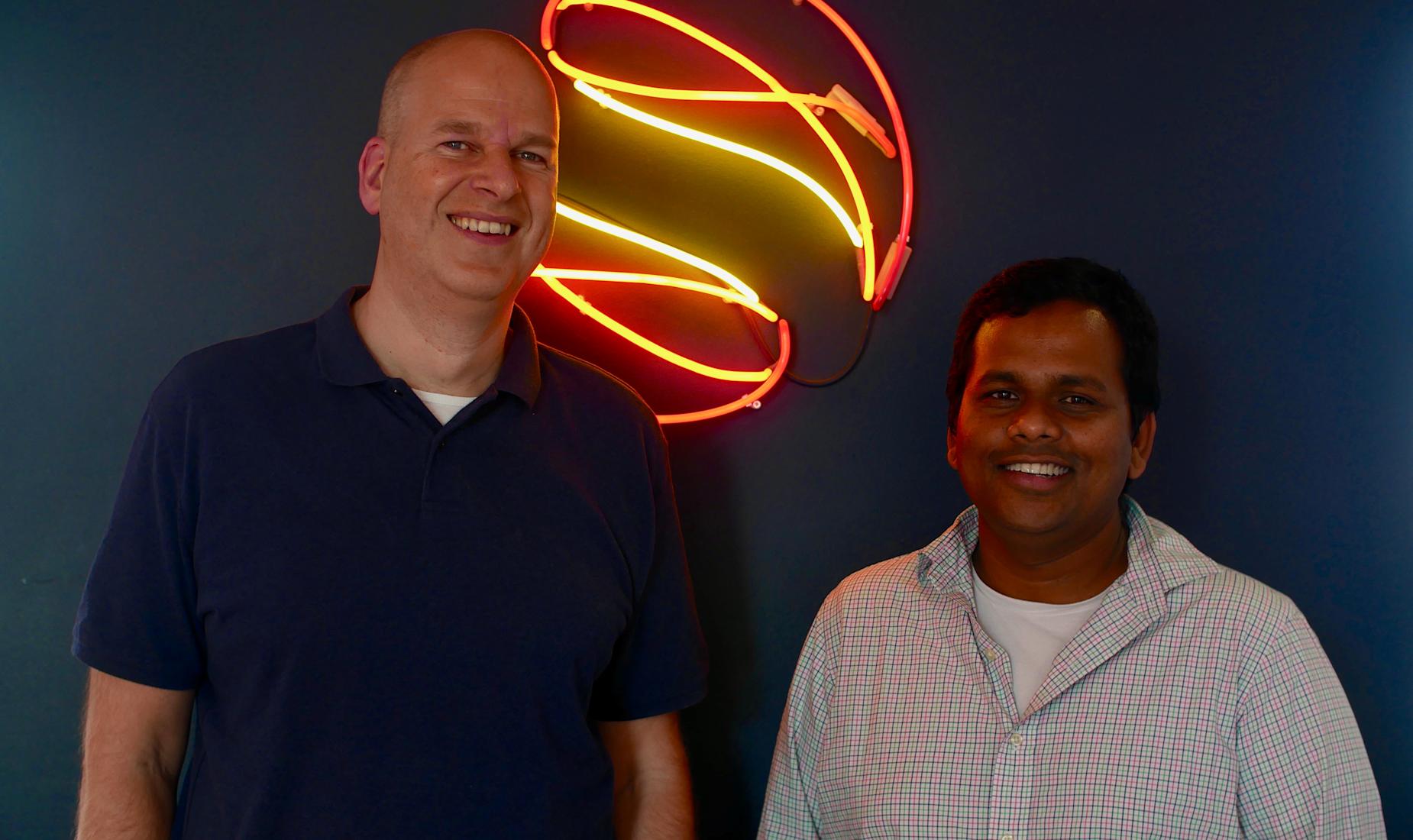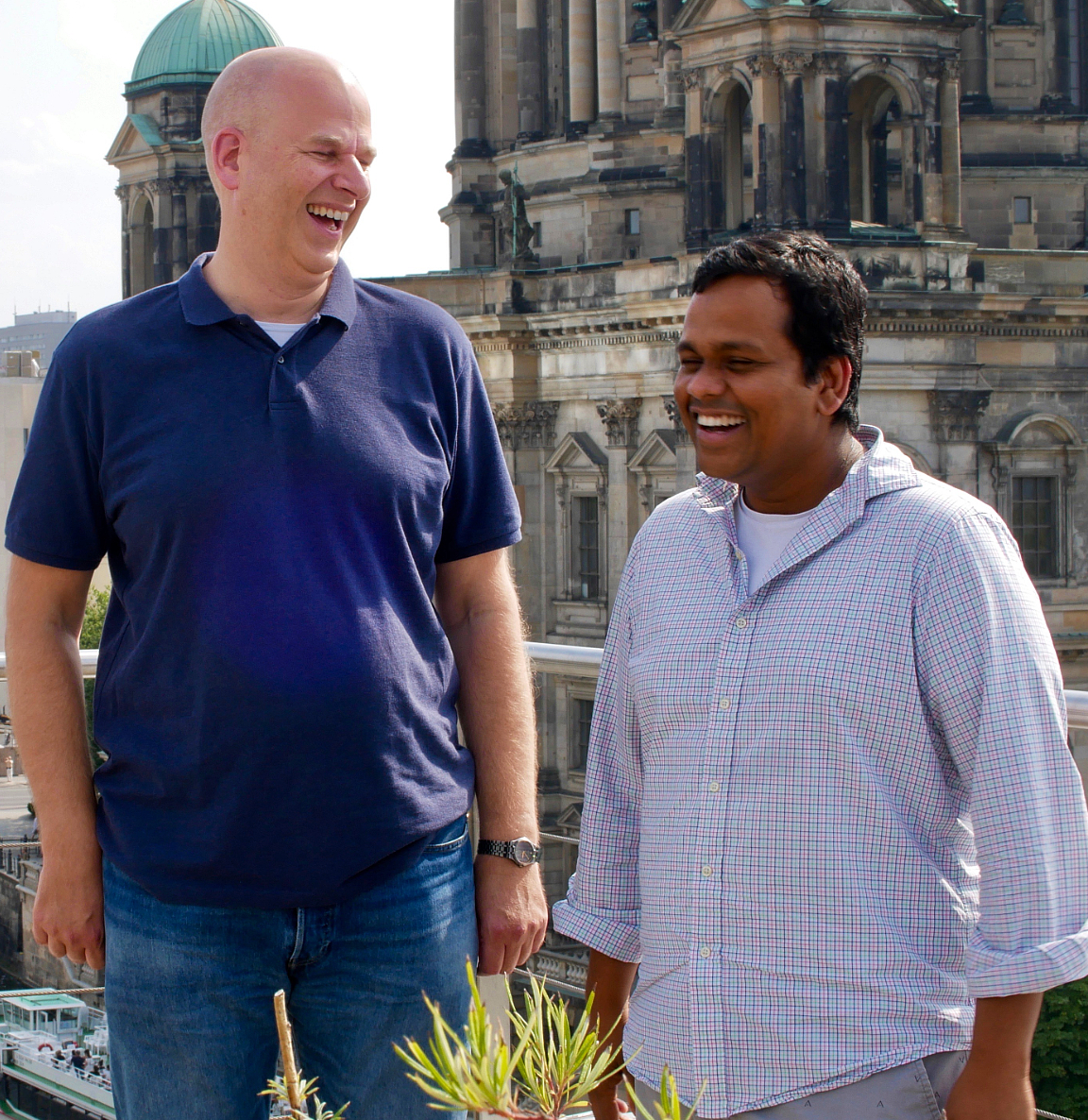Get to know our new CFO and CTO
4 minute read


We are delighted to introduce to you two new faces in our leadership team! Our new CTO, Hima Mandali, joins us from the US, bringing with him 10 years of experience building the tech infrastructure at banking giant Capital One. Thom Rasser, a seasoned banking expert from the Netherlands, comes aboard as our new CFO after having spent over 20 years at Dutch bank NIBC. We sat down with the two to get to know the people behind the titles.
Hima, let’s start with you. What will your responsibilities look like as solarisBank’s new CTO?
I want to bring solarisBank to the next level. We’ve had a very successful run so far, but now it’s time for us to enter a new stage of growth. I want to scale our platform further - both to handle the growing volumes of our existing business, and also to expand our range of best-in-class products. I will also oversee the architectural projects required to enable a smooth and fast internationalization of our platform, which is the next logical step on our growth path.
Were you familiar with Banking as a Service before learning about solarisBank? What were your thoughts on it?
I had heard bits and pieces of the concept before, but I was unaware that there was already a licensed, fully functional Banking as a Service Platform operating at this scale. When I was presented with the opportunity to work for solarisBank, I took a close look at the business model. I found that while the majority of the banks in the States offer digital services as part of their banking products, none of them offer banking as a service. With their approach, solarisBank is really pushing the digital agenda in banking forward, which ultimately convinced me to take on the role.
Do you still code in your role? Do you code in your free time?
(laughs) I don’t need to write any code in my role, no. I do use it a lot for communicating with our teams, however. Looking directly into the code of our APIs is the easiest way for me to grasp the scope and complexity of a given project. I also have a habit of looking into people’s code before I meet them at interviews or meet and greets. It usually gives me a good understanding of how they approach and solve problems. The last time I coded myself was probably two years ago. We were integrating some libraries for an augmented reality project; which sounds a lot more exciting than it was.
At the moment, I’m focusing on hiring to further strengthen our tech organization. I’m looking to add new skill sets to complement our existing ones. I’ve regularly been attending meetups in Berlin to speak to developers, and I have to say I’m impressed with the concentration of talent in this city!
Can you tell us about your passions in tech and beyond?
I am a huge Apple fan. I have every Apple product that you can imagine. Even though I’m not living in the States anymore, I ordered an Apple card (laughs). I’m also really into motorcycles. I had one in the States and I can’t wait to get one here in Germany to take some trips!

Now to you Thom, can you tell us a little about what your role as CFO entails?
Besides leading the Finance and Risk departments, I will be responsible for steering the balance sheet together with Treasury.
What’s the difference for a CFO between solarisBank and a traditional bank?
The difference lies in the business model. solarisBank is a tech platform with a banking license. That means that at solarisBank, technology is at the very core of our value proposition. Our Banking as a Service platform enables other companies to offer banking services themselves. At a traditional bank, the balance sheet plays a more important role. This has implications for the role of the CFO: at solarisBank, there needs to be more focus on defining the drivers of the business and measuring the financial performance against those. This requires a different approach.
What do you think banking is going to be like in ten years?
Obviously, I can only guess at that, but I am convinced, that Banking as a Service models like that of solarisBank will play a crucial part in shaping the future of banking.
After the crisis, banks started to become a lot more client-oriented. They started to recognize banking for what it really was – a service. Consumers and companies do not want to purchase a banking service for its own sake, but rather to achieve a goal, like buying a new car or paying an employee. Thus, the purpose of banks should be to make the journey to this goal as fast and easy as possible.
Now, ten years down the road, with digital services from the likes of Amazon, Google and Facebook shaping consumer experience and creating expectations in that field from other service providers, banks are facing the next step in their evolution towards client focus. By integrating banking services directly into the apps and web interfaces of companies, banks can shorten and quicken the customer journey even further. So, when I imagine a bank in ten years’ time, I see it acting primarily in the background, integrating its services into those of other players.
What’s one thing people would not expect the CFO of a German bank to do?
It may come as a surprise, but I cycle to the office every day!

